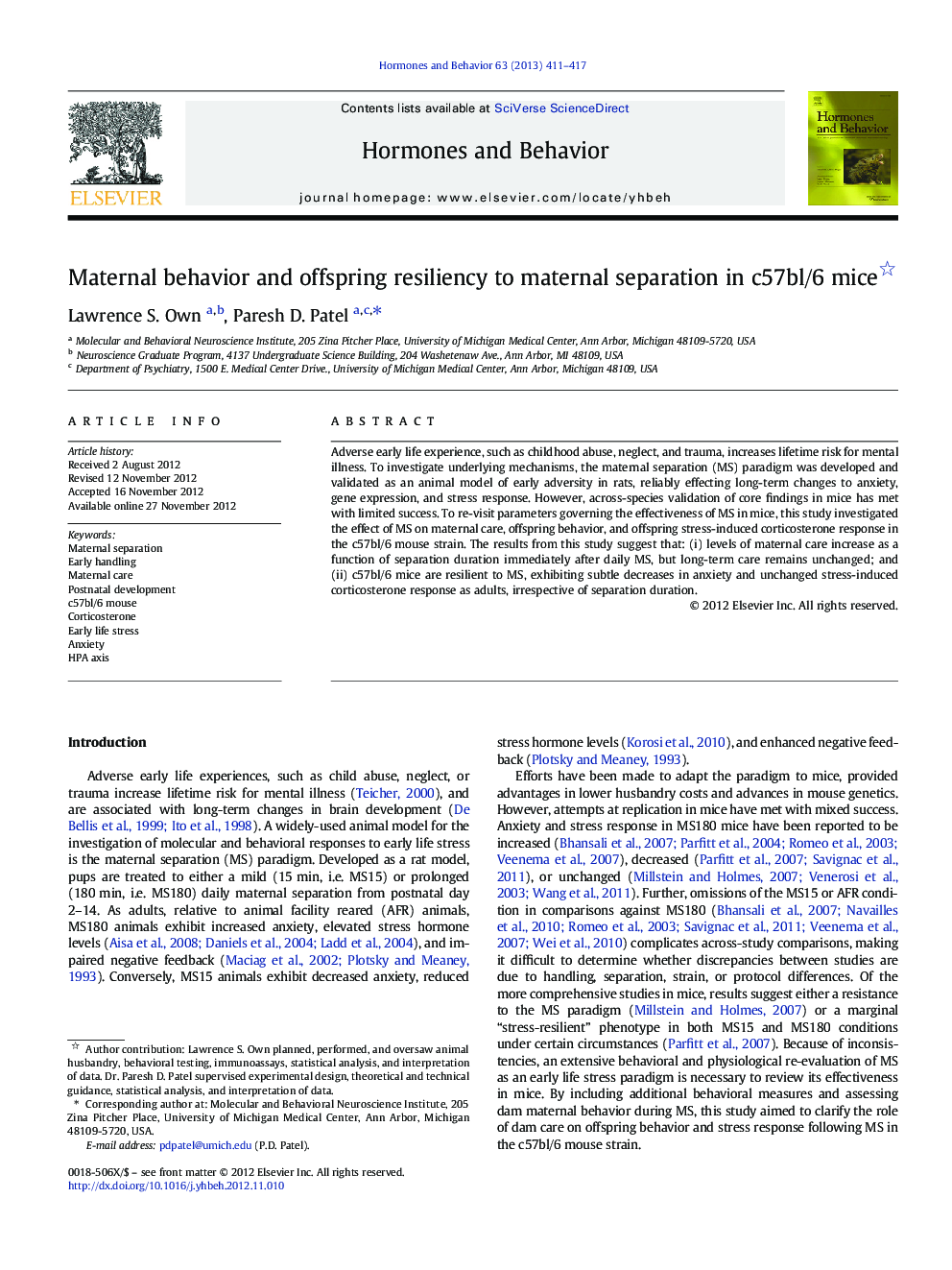| Article ID | Journal | Published Year | Pages | File Type |
|---|---|---|---|---|
| 323989 | Hormones and Behavior | 2013 | 7 Pages |
Adverse early life experience, such as childhood abuse, neglect, and trauma, increases lifetime risk for mental illness. To investigate underlying mechanisms, the maternal separation (MS) paradigm was developed and validated as an animal model of early adversity in rats, reliably effecting long-term changes to anxiety, gene expression, and stress response. However, across-species validation of core findings in mice has met with limited success. To re-visit parameters governing the effectiveness of MS in mice, this study investigated the effect of MS on maternal care, offspring behavior, and offspring stress-induced corticosterone response in the c57bl/6 mouse strain. The results from this study suggest that: (i) levels of maternal care increase as a function of separation duration immediately after daily MS, but long-term care remains unchanged; and (ii) c57bl/6 mice are resilient to MS, exhibiting subtle decreases in anxiety and unchanged stress-induced corticosterone response as adults, irrespective of separation duration.
► Effectiveness of maternal separation in the c57bl/6 mouse strain investigated. ► Transient, but not long-term, increases in post-separation maternal care. ► C57bl/6 mice are stress-resilient to maternal separation. ► Offspring exhibits a subtle decrease in anxiety-like behaviors. ► Offspring basal and stress-induced corticosterone response remain unchanged.
